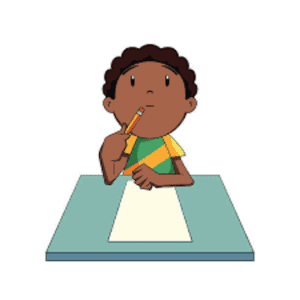W.A.I.T.
I heard the acronym W. A. I. T. used the other day on a podcast. It resonated with me. W.A.I.T –stands for Why Am I Talking….. ?
I looked it up on Google to give credit to the source and found out it’s been used for over a decade; in trainings, TED Talks, and other places. I was surprised I’d never heard of it before with all the mentoring and coaching I’ve done over the years.
W.A.I.T is the partner to listen. When we are talking we can’t be listening and if we think we are we’re probably fooling ourselves. There are so many situations I find myself in where I should be asking myself W.A.I.T., Why Am I Talking?
One such situation is when I’m with friends. A group of buddies and I meet once a week for coffee. We get into some serious and animated conversations. It’s so easy for one person to bring up a subject, and another to start talking about her experience with that subject. This unknowingly removes the conversation from the person who started the topic. No one does it intentionally, but because we can be so passionate, excited, or incensed about an idea, we want to share our own thoughts and experiences with it. In doing so sometimes the conversation gets hijacked from the person who brought it up, and they end up never expressing what they wanted to talk about.
I coach a lot of new administrators and my job is to be there to support them in their new positions. As much as I try not to, many times I’ve stopped to realize that I’m talking about my experiences more than listening to theirs. It’s so tempting to want to share personal stories that are similar, partly to let the other person know they’re not alone, but also because most of us like to talk about our own lives. It’s important for me to remind myself of the W.A.I.T. acronym before each coaching session.
That acronym for Why Am I Talking? is also important to remember when spending time with my grandkids. When we’re together I learn so many interesting and new things about what they’re doing in their lives and I love it. From the sports they participating in, to the essays they write for class, the things they learni in history and science, and their different interactions with their friends. They lead very interesting lives. One of my granddaughters shared an essay she wrote for her English class on Cancel Culture, she had many new and interesting thoughts she incorporated into her writing, things I may not have thought about. If it was me talking about my writing I would never have heard her views and what was important in her mind.
For those of us in education there are so many opportunities to learn from our students if only we can W.A.I.T. and ask ourselves the question Why Am I Talking? I should be listening. I think there’s a reason why we humans have two ears and one mouth. Perhaps we should think about that when we’re around others. Trying to understand another’s point of view is easier if we first try to hear what they say, and we can’t do that as well when we’re talking.



